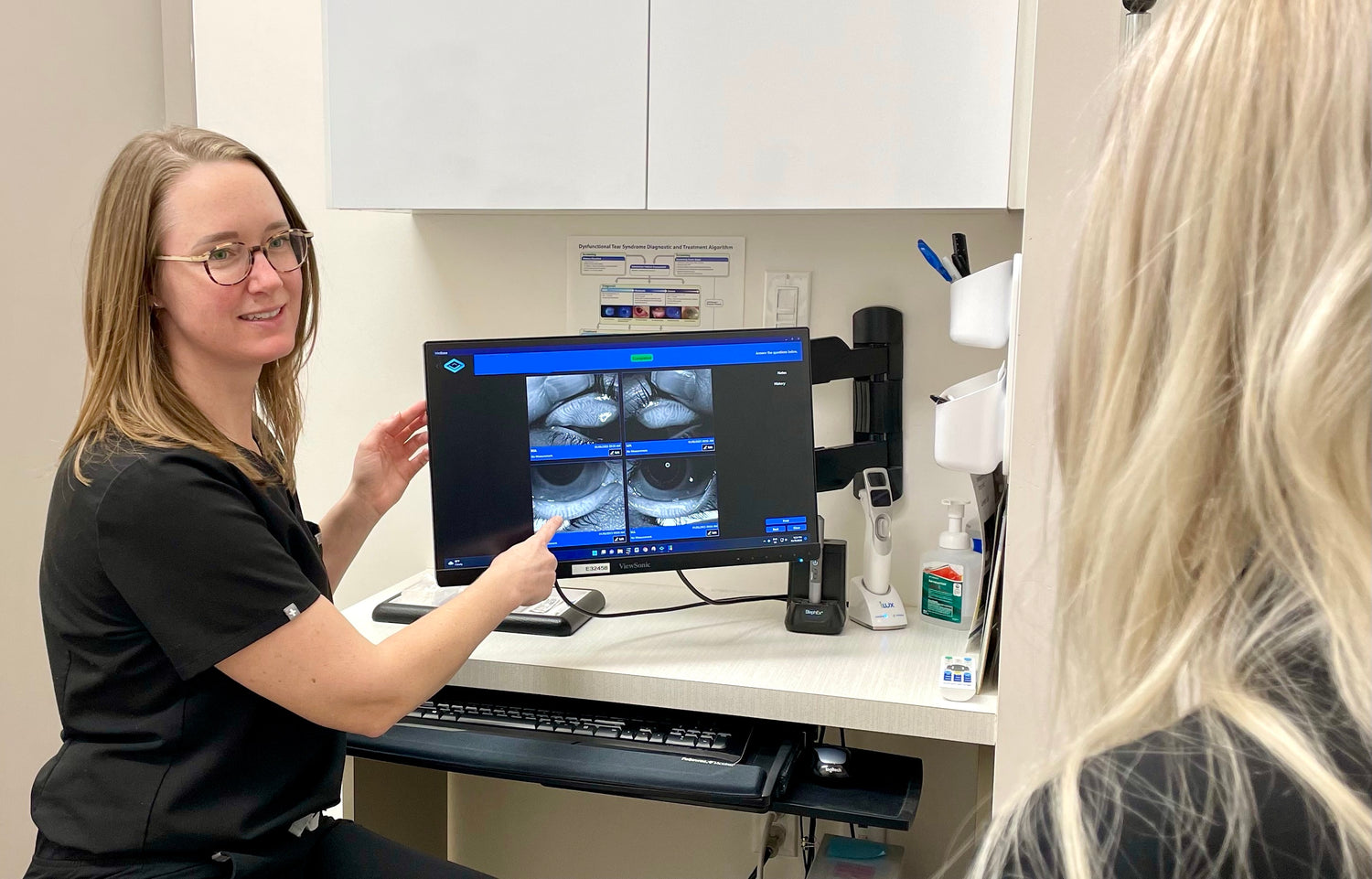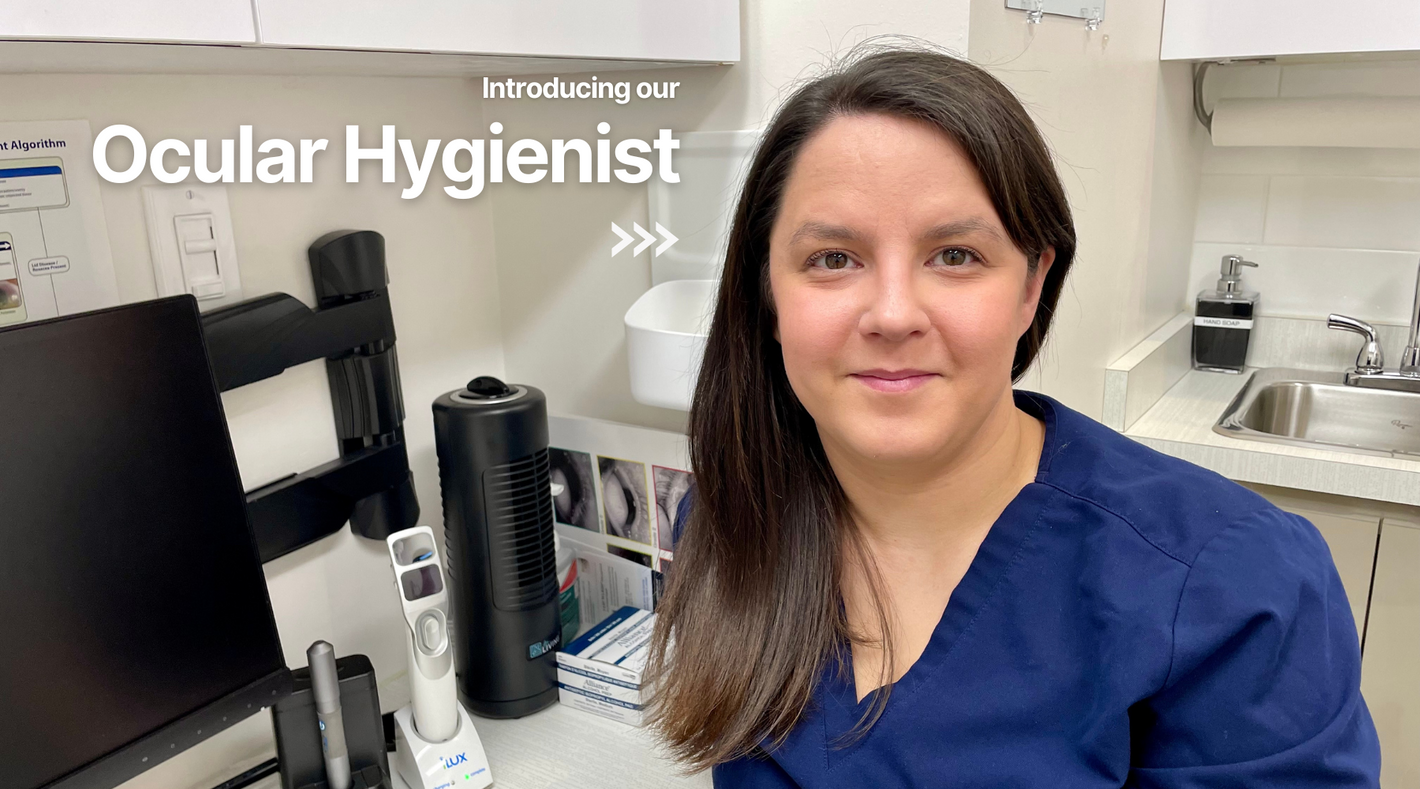Dry Eye Assessment

What is Dry Eye Disease?
Dry Eye Disease is a common problem resulting from your eyes not making enough tears, or the tears not working correctly to hydrate your eye’s surface.
If left untreated, dry eye can cause complications that may compromise your eye health and vision. Our optometrists can help you diagnose, treat, and manage dry eye issues!
Causes and symptoms
Many factors increase the likelihood of someone experiencing dry eye, such as age, gender, environmental conditions, medications, medical conditions, use of screens, and wearing contact lenses.
Dry eye can be short-lived but is often a chronic problem, referred to as Dry Eye Disease. It can leave you feeling very uncomfortable and make doing your daily activities difficult. In severe cases, it can be debilitating.
Symptoms include:
- Stinging or burning
- Redness
- Irritation or gritty feeling as if something is in your eye
- Watering
- Blurred or fluctuating vision
Evaluation and treatment for Dry Eye Disease
If you feel you may be experiencing dry eye, please contact our office to book a comprehensive Dry Eye Assessment.
This evaluation will allow your optometrist to diagnose your dry eye disease and identify the underlying causes.
The evaluation consists of measuring the quality and amount of tears on your eyes by microscope with various dyes and checking your tears' osmolarity (salt concentration). A doctor will also assess the eyelid and eye structures responsible for tear production and function.
Using a specialized camera, called a meibomographer, your optometrist will take images of your meibomian glands, the tear oil producing glands inside the eyelids. All of this will help your optometrist to develop a targeted and personalized treatment plan for your dry eye disease.
Dry eye disease treatment may include:
- Daily use of a specified artificial tear
- Medicated eye drops
- Oral supplements or medications
- At-home and in-office lid treatments
- iLux® Treatment
- Lifestyle changes
- Tear duct plugs
- Referral for surgical consultation
Dry eye disease cannot be cured, but treatment aims to minimize your symptoms, thus improving your comfort and quality of life. Long-term management will help to maintain your eye health. You and your doctor of optometry will work together to keep your symptoms under control!

Ocular Hygienist
Cassie Smith is a certified Ocular Hygienist, and has been a valuable part of our team since 2016.
Our Ocular Hygienists play a crucial role in managing dry eye symptoms by providing specialized care and guidance. They aide in educating and guiding you toward maintaining optimal eye hygiene, as well as providing treatments under the direction of your optometrist. Click here to find out more about how they can help you.
Book an Appointment
Please note, not all optometrists are available through online booking - for more details, please call or email.

